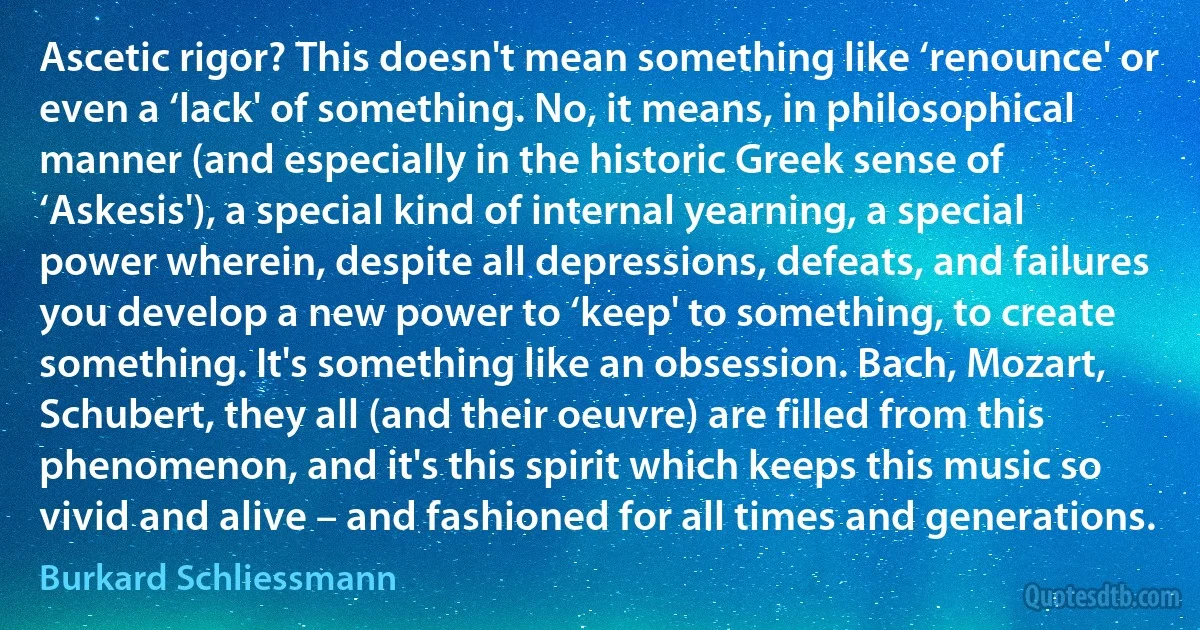Schubert Quotes - page 2
The achievement of such a change of register through a sequential progression is a familiar procedure in the music of the "common practice." The significant distinction is that where Berg subdivides the registral span into equal, i. e., cyclic, intervals, his tonal predecessors subdivide it, in changing register through sequential transference, into the unequal intervals of the diatonic scale. As I pointed out in my last lecture, however, the qualitative transformation in the language of music which we have experienced in our century has a long prehistory. Beginning with Schubert, we occasionally find normal diatonic functions questioned in changes of key that progress along the intervals of the whole-tone scale, or the diminished-7th chord, or the augmented triad. An even more radical example of a cyclic progression in a tonal composition is...from Wagner.

George Perle
He sat still a long time. Music will not save us, Otto Egorin had said. Not you, or me, or her, the big golden-voiced woman who had no children and wanted none; not Lehmann who sang the song; not Schubert who had written it and was a hundred years dead. What good is music? None, Gaye thought, and that is the point. To the world and its states and armies and factories and Leaders, music says, "you are irrelevant”; and, arrogant and gentle as a god, to the suffering man it says only, "Listen.” For being saved is not the point. Music saves nothing. Merciful, uncaring, it denies and breaks down all the shelters, the houses men build for themselves, that they may see the sky.

Ursula K. Le Guin
We come after. We know now that a man can read Goethe or Rilke in the evening, that he can play Bach and Schubert, and go to his day's work at Auschwitz in the morning. To say that he has read them without understanding or that his ear is gross, is cant. In what way does this knowledge bear on literature and society, on the hope, grown almost axiomatic from the time of Plato to that of Matthew Arnold, that culture is a humanizing force, that the energies of spirit are transferable to those of conduct?

George Steiner

